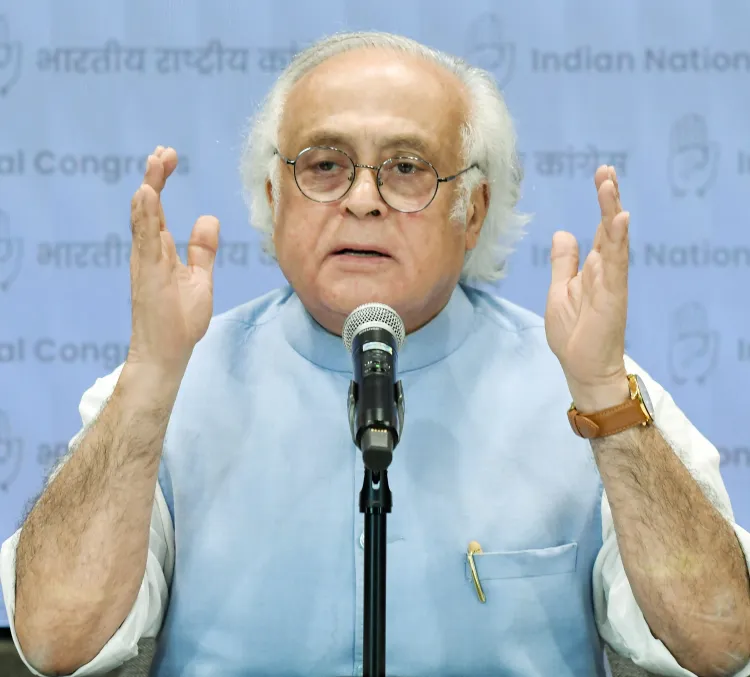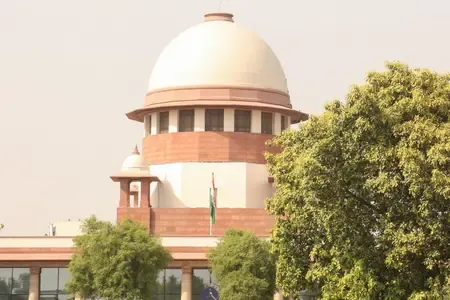Did Congress Accuse 'Vote Chori' in Bihar's NDA Victory?

Synopsis
Key Takeaways
- Jairam Ramesh alleges massive vote theft in Bihar's NDA victory.
- Congress' seat count drastically fell from 19 to 5-6.
- BJP officials dismiss claims as sour grapes.
- Concerns over electoral integrity are rising.
- Future elections may be impacted by these allegations.
New Delhi, Nov 14 (NationPress) Just hours after the National Democratic Alliance secured over 200 seats in Bihar, senior Congress figure and Rajya Sabha MP Jairam Ramesh unleashed a fierce critique targeting the Election Commission, Prime Minister Narendra Modi, and Home Minister Amit Shah, accusing them of orchestrating a massive scheme of 'vote chori' (vote theft).
In a post on X, Ramesh stated: “The election outcomes in Bihar undoubtedly indicate vote chori on a gigantic scale – orchestrated by the PM, HM, and the Election Commission. The Indian National Congress reaffirms its commitment to vigorously continue its mission to safeguard the Constitution and our democracy.”
The statement reflects the most intense response yet from the Congress leadership following its drastic decline in Bihar, where it has plummeted to merely 5-6 seats from the 19 it held in 2020, despite contesting 61 constituencies as part of the Mahagathbandhan.
The alliance itself has drastically fallen from 110 seats in 2020 to below 40, while the NDA surged past the 200-seat threshold, bolstered by an unprecedented turnout of women and a consolidation across caste demographics.
Congress insiders indicated that the party had flagged “systematic deletions” of voters, particularly from booths dominated by Muslim, Dalit, and EBC communities, leading up to the elections, and alleged that special summary revisions mandated by the Election Commission disproportionately impacted opposition-held strongholds.
Workers from at least 47 constituencies filed written grievances concerning names missing from electoral rolls, a claim the Election Commission dismissed as standard procedure for purging duplicates and deceased voters. Senior leaders within the INDIA Bloc seemed to be divided on the “vote chori” narrative.
While partners from the Left echoed concerns regarding the reliability of EVMs and discrepancies in voter lists, RJD leader Tejashwi Yadav refrained from endorsing the Congress narrative, attributing the defeat instead to “consolidation of women and EBC votes” and internal party issues.
The BJP responded promptly. Union Minister Giriraj Singh labeled Ramesh’s comments as “the sour grapes of a party facing extinction in Bihar,” while Amit Shah remarked: “The public has rejected dynastic politics and appeasement. Rather than self-reflection, Congress is denigrating the mandate from Bihar’s daughters and sisters.”
As the Congress intensifies its “Save Constitution” campaign in anticipation of significant civic elections and the 2026 confrontations in West Bengal and Assam, Jairam Ramesh’s remarks suggest that the opposition’s narrative post-defeat will focus on institutional capture rather than organizational shortcomings.









